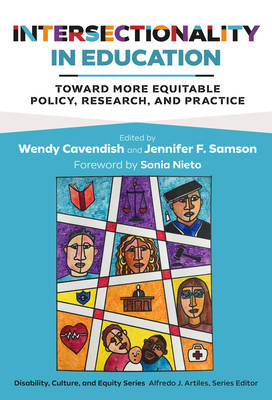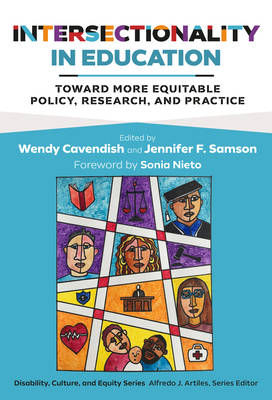
- Retrait gratuit dans votre magasin Club
- 7.000.000 titres dans notre catalogue
- Payer en toute sécurité
- Toujours un magasin près de chez vous
- Retrait gratuit dans votre magasin Club
- 7.000.0000 titres dans notre catalogue
- Payer en toute sécurité
- Toujours un magasin près de chez vous
Intersectionality in Education
Toward More Equitable Policy, Research, and Practice
Description
This book presents a framework for addressing intersectionality within educational spaces to combat the cumulative effects of systemic marginalization due to race, gender, disability, class, sexual orientation, and other identity-based labels. Readers can use the framework to consider the impact of identities that individuals adopt or are assigned, move beyond discrete subgroup labels, and fully consider how such markers impact how education policy and research are developed, enacted, and experienced. The text presents examples of existing systems (education, law, medicine, and juvenile justice) as experienced by individuals with intersectional social identities. Each chapter provides an innovative framework that highlights diverse ways of knowing, generating insights that can inform more equitable policy analysis, research, and practice.
Book Features:
- A protocol for applying an intersectionality-based analytic (IBA) approach to education policy, research, and practice.
- Case study examples of how IBA can be implemented to improve decision making across disciplines and by various stakeholders.
- Guiding questions that can be used to develop complex research questions and methods that interrupt power differentials within research and policymaking processes.
Spécifications
Parties prenantes
- Editeur:
Contenu
- Nombre de pages :
- 176
- Langue:
- Anglais
- Collection :
Caractéristiques
- EAN:
- 9780807765135
- Date de parution :
- 09-04-21
- Format:
- Livre relié
- Format numérique:
- Genaaid
- Dimensions :
- 160 mm x 231 mm
- Poids :
- 385 g

Les avis
Nous publions uniquement les avis qui respectent les conditions requises. Consultez nos conditions pour les avis.





